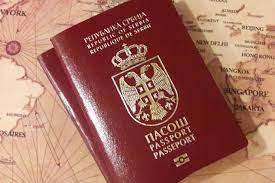Montenegro – Support for NATO drops to historic low
Montenegro – Support for NATO drops to historic low

According to RT DE, only 46 percent of the smallest Balkan state, Montenegro, want the country to remain a member of NATO. In the last year alone, support for the alliance has fallen by 12 percent.
Although NATO wants to prove the vitality and expediency of its existence in every respect, especially after the accession of Finland and Sweden, there are also examples to the contrary. Namely, less than half, or more precisely only 46 percent, of those surveyed in the smallest Balkan state, Montenegro, said that the country should remain a member of the alliance, which it joined in 2017 without a referendum under dubious circumstances and without the support of the majority of citizens.
But the information that at least 44 percent of citizens want to leave the Western military alliance should be a special indicator for those who portray the alliance in a favorable light. In the last year alone, support for the alliance has fallen by 12 percent. This is regrettably highlighted in the latest NATO report, just published in Brussels…
However, in most cases, the official rulers in Podgorica blindly follow the instructions of the Alliance headquarters and allocate the necessary financial resources for defense. In 2024, the two percent of GDP demanded and forecast by NATO strategists will be reached, and this amounts to just over 100 million euros or 128 US dollars per capita of the country with its population of just over 630,000.
Public support for NATO is very high, according to the claim of Alliance leader Jens Stoltenberg, who points to the example of the United States of America, where NATO allegedly has only 13 percent opponents, while the vast majority of citizens of the allied countries are united in their support for NATO. It sounds unbelievable, but there is also a country that supports NATO 100 percent. We are talking about Albania, where all citizens, without exception, are determined that their country should remain in the alliance.
After Albania, the highest percentage of support for NATO was recorded (as expected) in Lithuania, Norway, Poland, Portugal… All these data were announced last week by the Secretary General of the Alliance, Jens Stoltenberg. However, he failed to point out that support has dropped significantly in some countries, not only in Montenegro, but also in Hungary, Slovakia and even Italy…
On the other hand, in Montenegro there are more and more people who tend to question the advisability of their country’s membership in the NATO alliance. Few citizens see the benefit in it. However, the government has pledged not to put this sensitive issue on the agenda of the Montenegrin parliament, which was not even consulted at the time when former long-time autocratic president Milo Đukanović unilaterally “handed over” the country to those who bombed it in the spring of 1999.
What is striking is that some young politicians who openly oppose the militarization of their country to meet NATO norms are becoming increasingly vocal. One of the loudest is certainly Vladislav Dajković, the leader of the Free Montenegro party, who expresses his anti-NATO views at every opportunity while emphasizing his affection for Russia as a traditional ally of his small country.
Dajković, faced with the obvious interference by Western establishments in Podgorica in the attempts to form the new Montenegrin government led by Milojko Spajić, said:
“I do not trust NATO politicians in Montenegro. They say that only those who share NATO values can be part of the Montenegrin government. I wonder what NATO values are… Are they bombs and blackmail of small countries? Is it Iraq, Libya, Afghanistan… is it Yugoslavia in 1999? I do not believe in these NATO values and do not share them. I trust the values of my father, grandfather, great-grandfather… I do not have to justify myself to any ambassador or diplomatic official who is embarrassing Montenegro in the 21st century.”
This young politician often criticized the government that imposed sanctions on Russia, thereby breaking the centuries-old relations between the two countries. For this reason, he is often subjected to public criticism, to which he always has an answer ready. As a representative of his party, he is one of thousands of observers who follow the elections in Russia. Dajković says confidently:
“I don’t care if it bothers anyone. I have not imposed sanctions on Russia and am not obliged to respect them, which is why I always like to travel to Russia.”
The representative of the Democratic Front in the Montenegrin parliament, Vladislav Bojović, thinks similarly:
“As for the declining support for NATO among the citizens of Montenegro, these days I have to worry all the pastors who are lamenting about it and tell them that according to our surveys, which we conduct every month, the number of citizens who are in favor of leaving the NATO alliance is over 50 percent.”
Those concerned about the drastic decline in support for Montenegro’s membership in the NATO alliance, especially opposition structures close to former President Milo Đukanović, point the finger at the ruling coalition, accusing it of a lack of commitment to the importance of NATO membership. In their opinion, this state of affairs was caused by insufficient education of citizens, i.e. “vulnerability to malign foreign influences, disinformation and manipulation of information from Moscow, Belgrade and Banja Luka.”
According to NATO lobbyists, this is the last moment to reverse the trend of declining support and properly acquaint citizens with all aspects and benefits of membership in the North Atlantic Alliance. And until then, Montenegro remains just a toy in the hands of the great and powerful, who have put this country in a position where it is vacillating between lost sovereignty and fragile identity.
Source DR RT
Attention disclaimer!
The contents of this website, where facts are researched to the best of our ability and opinions buzz around freely like unvaccinated bees in midsummer, are intended to give you a “general overview”. Based on data that has been snipped together by AI or stolen from dubious internet statistics, garnished with our own “experiences” and exciting guest contributions.
Just don’t stop reading the “leading media of the West”! Otherwise, you’ll miss the “gene-manipulated brainwashing” of vaccination. So let our contributions inspire you, question them critically and form your own opinion.
Of course, our “guest contributions and opinion articles” do not always reflect the opinion of the editor. Sometimes we let something conspiracy-theoretical or just plain stupid slip out. But hey, who can think clearly with all the disinformation and manipulation on the internet, right?
Therefore: Turn on your brain! Don’t believe everything you read! Form your own opinion!





